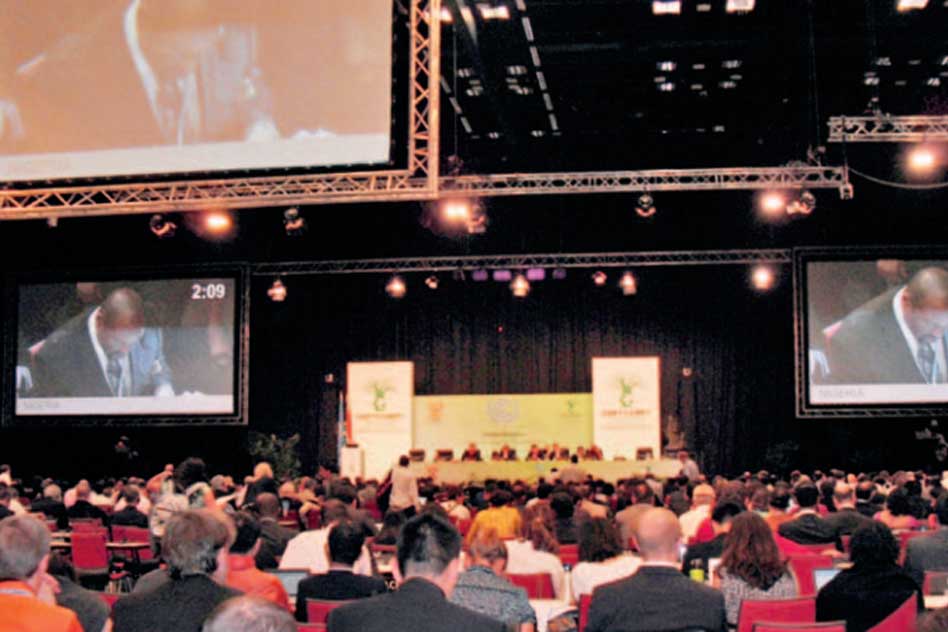
Matthew Orosz is a PhD student in civil and environmental engineering whose research focuses on photovoltaic and solar thermal power systems. The MIT Energy Initiative sponsored Orosz to attend COP17 as part of the MIT delegation.
In December 2011, I joined 17,000 people from around the world as an observer at the UN Framework Convention on Climate Change (UNFCCC) Conference of the Parties (COP) 17, which convened in Durban, South Africa. Through the sponsorship of the MIT Energy Initiative, I represented the MIT student body and engaged with the policy process that determines the international response to climate change.
As a doctoral student in civil and environmental engineering at MIT, I had both personal and professional motivation to experience and learn from the Durban COP. My research involves the application of solar thermal power to off-grid health and education institutions in the developing world. Central to this topic are sustainable energy and technology transfer—issues that make having a real impact on the ground challenging from both a technical and a political-economic perspective. Sustainable energy and technology transfer are likewise critical to the theme of the UNFCCC. Therefore, I was eager to absorb the strategies discussed at the highest levels of the UN agencies and international organizations represented at the conference.
Participating in the COP afforded me unprecedented access to decision-makers relevant to my field. I was able to sit down one-on-one with high-level representatives from the World Health Organization, the World Bank, and the US National Renewable Energy Laboratory to discuss my work. The networking opportunities alone made my participation worthwhile. In addition to watching climate policy thought leaders in action, I was able to gain exposure for my decade-long renewable energy efforts in Africa and lay the groundwork for potential collaborations in the future.
The COP is overwhelming: It hardly fits in your field of vision. Negotiations by the UNFCCC member governments are frequently closed to observers and the media. But there are open negotiation sessions, plenaries, and other formal and informal events that sprawl across several acres and last well into the night. Countless groups strive to make their voices heard, aligning climate change with their particular issues: poverty, gender mainstreaming, preservation of indigenous cultures, and so forth.
Students from around the world are present at the COP, many researching topics across the spectrum of climate change. While many universities—like MIT—send one or two student delegates, some send platoons. I met dozens of Yale and Duke students, including some veterans of several COPs who were kind enough to get me up to speed. On my second day at the COP, Jeff Gustafson, a master’s student leading the Duke delegation, joined me on a video-conference call to the Global Environmental Science and Politics class at MIT, where we reported on the conference and engaged the class in a lively discussion.
In the end, the outcome of two weeks of intense wrangling in Durban fit on a slender two pages, and by many standards it lacked ambition. The fact that a UNFCCC protocol is about as binding as a New Year’s resolution is frustrating for everyone, but especially for those feeling vulnerable to the perils of climate change. The UN process may not be adequate to the challenge, but an alternate platform for bridging the differences between nations is hard to envision. COP17 proved once again that incremental consensus-building efforts demand patience and determination.
This article appears in the Spring 2012 issue of Energy Futures.